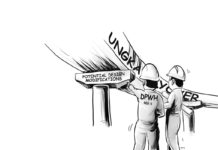
[av_one_full first min_height=” vertical_alignment=” space=” custom_margin=” margin=’0px’ padding=’0px’ border=” border_color=” radius=’0px’ background_color=” src=” background_position=’top left’ background_repeat=’no-repeat’ animation=”]
[av_heading heading=’OFW deployment ban a timely move’ tag=’h3′ style=’blockquote modern-quote’ size=’30’ subheading_active=’subheading_below’ subheading_size=’18’ padding=’10’ color=” custom_font=” av-medium-font-size-title=” av-small-font-size-title=” av-mini-font-size-title=” av-medium-font-size=” av-small-font-size=” av-mini-font-size=” admin_preview_bg=”]
BY MANNY VILLAR
[/av_heading]
[av_textblock size=” font_color=” color=” av-medium-font-size=” av-small-font-size=” av-mini-font-size=” admin_preview_bg=”]
Wednesday, March 14, 2018
[/av_textblock]
[av_textblock size=’18’ font_color=” color=” av-medium-font-size=” av-small-font-size=” av-mini-font-size=” admin_preview_bg=”]
“WHEN will this inhuman treatment of Filipino workers end? When will the upliftment of their human dignity begin?”
When President Rodrigo Duterte raised these questions in a press conference last February 9, he was not just seeking answers – he was expressing extreme disappointment and maybe even outrage, following the discovery on Feb. 7 of the body of a domestic worker that was hidden in a freezer for a year in Kuwait.
Kuwaiti police were out to serve an eviction order in an apartment in Al-Shaab, Kuwait when they discovered the body of 29-year-old Joanna Demafelis, a household worker, inside a freezer. Her body bore torture marks, an indication that she was strangled to death.
Two days after the discovery of Demafelis’s body, the President ordered a ban on the deployment of overseas Filipino workers (OFW) to Kuwait. The Middle Eastern country hosts about 250,000 OFWs, of which 75 percent are domestic workers.
Directing himself at Kuwait and other host governments, the President stressed he was not asking for special treatment for OFWs, but respect for their dignity and basic human rights.
Demafelis’s employers, Mona Hassoun and Nader Essam Assaf, were recently arrested in Syria and Lebanon as the prime suspects in Demafelis’ death, but the Department of Labor and Employment (DOLE) said the ban on OFW deployment to Kuwait would remain.
At the same time, President Duterte said the deployment ban would extend to other countries where OFWs are abused.
DOLE said it was considering a ban on the deployment of OFWs to Saudi Arabia because of reports of abuses committed on Filipino workers in that country.
Reports quoted Labor Secretary Silvestre H. Bello III as saying Filipino household workers in Saudi Arabia were even illegally traded to other employers through “auctions.”
Saudi Arabia, the top destination for OFWs, hosts an estimated two million OFWs.
The President acknowledges that the jobs provided by other countries to Filipinos contribute significantly to the Philippine economy, through the remittances they send to their families.
According to the Bangko Sentral ng Pilipinas (BSP), cash remittances last December alone rose by 7.1 percent to $2.74 billion. This brought the full-year cash remittances to $28.1 billion, 4.3 percent higher than the $26.9 billion in 2016, and faster than the pace earlier expected by the government at 4 percent.
The OFW remittances kept the Philippine economy afloat during previous global crises, which sent other countries to recession. Today, these remittances remain as a major force in driving economic growth, aside from the comforts enjoyed by the families of OFWs.
Nevertheless, I agree with the President’s position that such benefits should not come at the cost of the lives of the OFWs.
In a speech before a group of Filipino-Chinese businessmen last February 19, the President said he was prepared to accept the difficulties that the ban on OFW deployment would bring on workers aspiring to work abroad, but he would not allow Filipinos to be abused and treated inhumanely.
I believe the President did right in imposing the ban on OFW deployment. Actually, I feel it should have been done long before the Demafelis case, because so many OFWs have died and subjected to cruel treatment by foreign employers for many years.
The government should look not just at the labor laws of host governments, but also at the culture and practices in countries because there may be some that treat and consider female workers more as slaves rather than employees.
When it comes to compensation, I don’t believe the amount received by household workers are worth the expense they incur in getting the job or the risk and lack of freedom they face inside their foreign employers’ houses, which are hidden from authorities.
There are an estimated 11 million migrant Filipinos throughout the world, majority of whom are OFWs, and millions are in the Middle East. They have served their home country well, so we call them heroes.
It is time to demand that, as President Duterte said, they be treated with respect and dignity.
With the Philippine economy sustaining robust growth and spreading development to the countryside, I feel we are getting closer and closer to my personal dream: that the day will come when Filipinos will no longer have to leave their families to find a job far from home.
***
This piece first came out in Business Mirror on March 5, 2018 under the column “The Entrepreneur.” For comments/feedback e-mail to: mbv.secretariat@gmail.com or visitwww.mannyvillar.com.ph./PN
[/av_textblock]
[/av_one_full]



